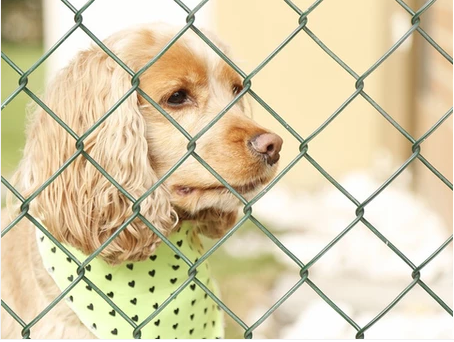Summer is the time to relax and take a vacation, yet it often calls for leaving your fur-baby behind in a kennel for a week or two. Going out of town can be an exciting change of pace for us humans, but the change in routine is tough on our dogs – and it can be extra-hard for anxious or reactive dogs who thrive on consistency.
Why do dogs develop separation anxiety? Unfortunately, there is no conclusive evidence showing exactly why separation anxiety occurs. However, it is found that far more dogs who have been adopted from shelters have this behavioral problem than those kept by a single family since puppyhood – it is often believed that a loss of an important person or group of people in a dog’s life can lead to separation anxiety.
Other factors that play into separation anxiety can include:
- Change of guardian or family – being abandoned, surrendered to a shelter or given to a new guardian or family can trigger the development of separation anxiety.
- Change in schedule – an abrupt change in schedule in terms of when or how long a dog is left alone can trigger the development of separation anxiety. For example, if a dog’s guardian works from home and spends all day with his dog but then gets a new job that requires him to leave his dog alone for six or more hours at a time the dog might develop separation anxiety because of that change.
- Change in residence – moving to a new residence can trigger the development of separation anxiety.
- Change in household membership – the sudden absence of a resident family member, either due to death or moving away, can trigger the development of separation anxiety.
If you’re worried about leaving your nervous dog in boarding, don’t worry! By researching the right accommodations, doing some pre-trip training, prepping all of your dog’s supplies in advance, and leaving a detailed care plan, you can enjoy your summer travels knowing your dog is in great hands. Here are a few ways to make your dog feel more comfortable:
- Consider leaving your dog at the kennel for one or two nights before your actual trip as a trial. You could also look into daytime doggy daycare options so your dog can get acquainted with the facilities, the staff, and the other pets that stay there. You can also get a better feel of how they manage dogs with separation anxiety to best decide if that kennel is right for your dog.
- If allowed, send along your dog’s bed, favorite toy, or anything else that can serve as an “anchor” to the familiar. While the environment is different, keeping certain aspects consistent with their daily routine will help your dog feel more comfortable.
- Give the kennel a sweatshirt or T-shirt you’ve been wearing, to leave in the pen with your dog. Your scent will provide comfort to them. If you travel longer than a week, consider giving them two shirts, and have them keep the second one in a sealed plastic bag to be swapped out for the first one halfway through their stay.
- Exercise also helps reduce your dog’s stress hormones. Most kennels offer some form of daily exercise, such as a run in a fenced yard or a walk with a staff member. If your dog is prone to anxiety, consider paying for additional exercise time to wear them out and limit their destructive tendencies.
- The act of chewing is also a good stress reliever for your dog! Make sure the kennel offers whatever chews you normally give your dog at home (bully sticks, stuffed Kongs, etc.). Chewing is also a familiar activity to them. Ask your kennel if you could send some along, or you may have to purchase these treats through them.
- When dropping off your dog, do it with a casual and carefree demeanor. Many kennels will have their staff usher your dog away without a drawn-out formal goodbye. As hard as it is on you not to get to give them one last hug or kiss – it is even harder on your dog to receive that much attention just to have you go away.
Animal Health Center offers boarding at our Albia and Ottumwa locations. Because we’re also a vet clinic, our staff is trained to care for animals with special needs (ie. Diabetes) and handle emergency situations, if they arise. Our full-service clinic also allows you to take care of routine vaccinations while they’re here, as well as other services such as nail trims, cleaning ears, and expressing anal glands. We are trained to notice signs of stress and have the capability of prescribing and administering calming medications for animals who are having a hard time settling in.
Learn more about our boarding services here!



